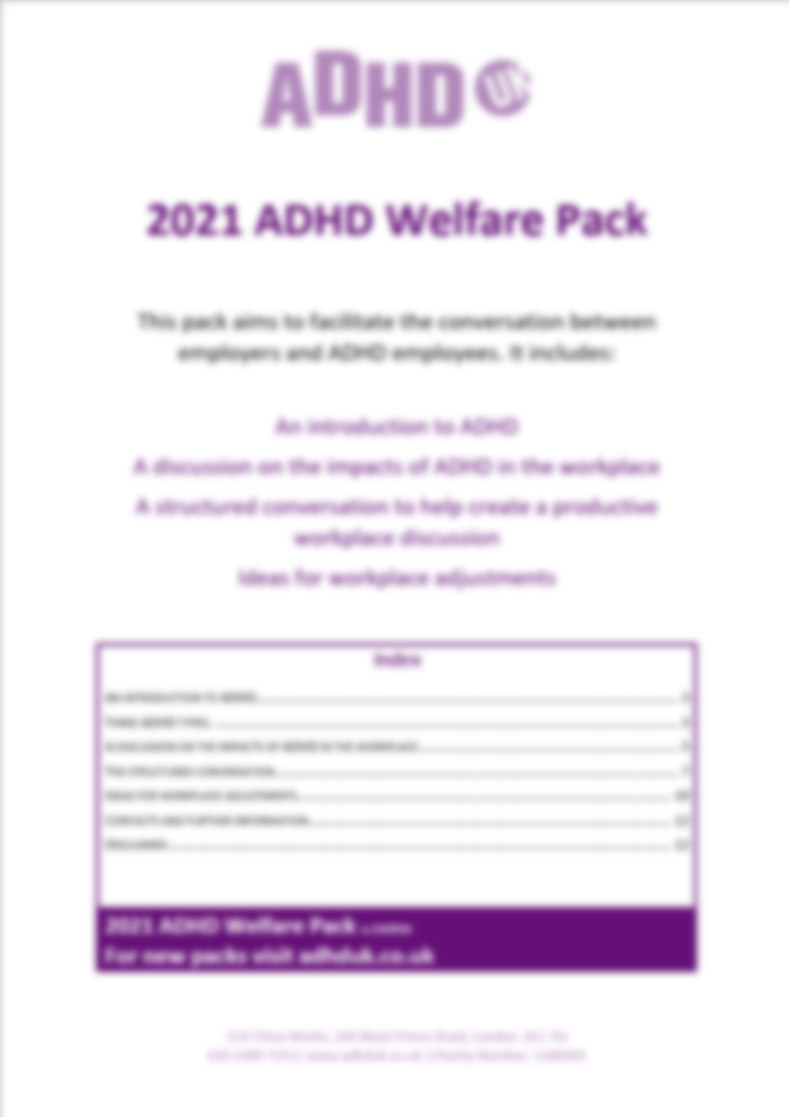Reasonable Adjustments
Adjustments in the workplace for individuals with ADHD
Background and Legal Position
In the UK, the Equality Act 2010 sets out the legal requirement for employers to make reasonable adjustments in the workplace for employees or job applicants who have a disability or long-term health condition. ADHD qualifies for both. It also not uncommon for individuals with ADHD to have co-existing conditions – notably Anxiety and Depression.
Under the Act, a disability is defined as “a physical or mental impairment that has a substantial and long-term adverse effect on a person’s ability to carry out normal day-to-day activities.” It includes conditions such as physical disabilities, mental health conditions, learning disabilities, and chronic illnesses.
Employers are required to make reasonable adjustments to ensure that disabled employees and job applicants are not placed at a disadvantage compared to non-disabled people. In broad terms this can include:
-
- Adjusting the working environment: This could involve making physical changes to the workplace, such as installing wheelchair ramps or adapting workstations to make them accessible for people with mobility difficulties.
- Changing work patterns: This could involve altering the hours or location of work to accommodate an employee’s disability.
- Providing additional support: This could include providing additional training or supervision to help an employee with a disability perform their job effectively.
- Adjusting recruitment processes: This could include allowing job applicants with disabilities to take part in the recruitment process in a different way, such as using a different format for interviews or providing additional time to complete assessments.
The adjustment must be reasonable. What is considered reasonable will depend on various factors, such as the size and resources of the employer, the nature of the work and the adjustment required, and the impact on the business. An employer is not required to make adjustments that would cause undue hardship, which would significantly impact the business’s operation or incur disproportionate costs.
If an employer fails to make reasonable adjustments, an employee may be able to bring a claim for discrimination under the Equality Act.
The ADHD at Work Welfare Pack
We have created a welfare pack to help help managers learn quickly about ADHD to enable them to help their employees. It is designed to educate on what it means to have ADHD in the workplace, and to aid the conversation between an employer and an employee with ADHD, with the aim of increasing mutual understanding and to help identify helpful reasonable accommodations.
This deals with the very important issue of people’s jobs and careers in the workplace, so we must issue a disclaimer that whilst every effort has been made with it, that it is used at your own risk.
The welfare pack is constructed of three sections :
- An introduction to ADHD from the perspective of the employer. For the conversation to be impactful it is essential that the employer has a good understanding of ADHD.
- A structured conversation. This aims to ensure a well-rounded, disability-focused conversation between the employer and the person with ADHD. Without structure we’ve found the conversation can often be too short and focused on “problems ” rather than traits.
- A short list of ideas for workplace adjustments. Reasonable adjustments that have come out of our own research. We name it “Ideas” so as not to close off any adjustments that might come out of your meeting. A more detailed list is below.
You can download the pack here.
Ideas for Reasonable Adjustments
The almost infinite number of combinations of unique individuals and different work and personal situations means that no list of ideas for recommendations can be exhaustive or should be taken as containing every option. In many situations the best solution comes from a discussion between the individual with ADHD and the relevant inividual(s) in their company. To help with that discussion we outline a number of ideas below.
Access to Work
The Access to Work government grant scheme offers the potential for substantial financial assistance where the costs of adjustments fall outside the reasonable costs of the employer. You can learn more about the grant here.

